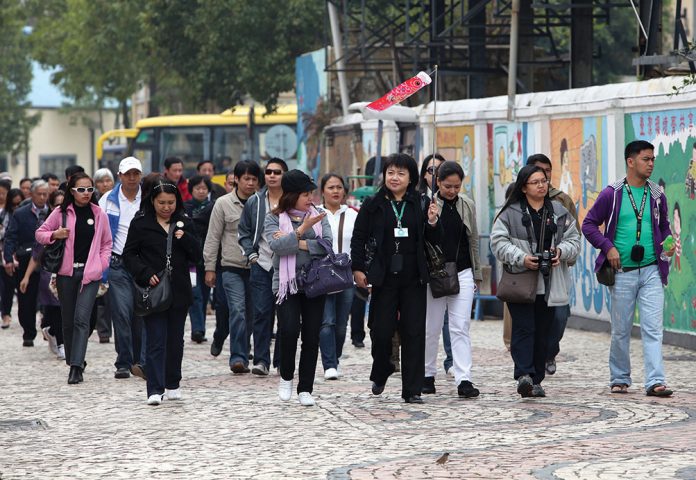Opinion | Keith Morrison – Author and educationist

According to Euromonitor International, Macau is ranked third in the world’s most visited cities, for overnight stays (a stay of over 24 hours and less than one year). Macau had well over 20 million overnight visitors in 2019, two places up from the previous year. In fact, the average length of stay has scarcely moved since records began in 2011, at 2.2 days for overnighters, and an unchanging 0.2 days, i.e. 4.8 hours (a morning, an afternoon, an evening) for same-day visitors. The Gongbei port is the world’s busiest land border crossing and Macau’s ferry terminals top the list of the world’s busiest seaport points of entry.
Macau is a honeypot. But why do visitors stay for such a short time? Are they here to soak up the city? Not at all: they trot around a few tourist sites, buy baby milk and cosmetics, whip into a casino, buy a take-home pack of unbelievably dry biscuits, and then it’s time to go. Maybe they are focused and know exactly what they want and where to get it: hit and run. No time for grazing or really taking in what Macau has to offer. Maybe they are happy to go where their flag-brandishing tour guide takes them, experiencing the buzz of frenzied people shouting at the tops of their voices for this and that. Maybe they are simply not interested in much more than a reasonably good feed, the chance to buy a few things that they can’t get at home, and a gambling session, i.e. easily satisfied with low standards.
In my gloomier moments many explanations proffer themselves for why visitors go so quickly. Maybe they can’t stand being in Macau for a moment longer than is necessary; Macau is so crowded with shambling wanderers that they leave at the earliest possible opportunity. Maybe because it’s a nightmare to be in the city centre, joining the train of jostling humanity corralled into its city streets like a fat, overfed uber-snake slouching its way along pavements that are too narrow to contain everyone. Maybe because, once they have fought their way to the ruins of Saint Paul’s, it turns out to be not much of a location apart from steps and an old façade, OK for taking selfies and then beating a quick retreat, a neat metaphor for Macau.
Maybe it’s because, if visitors decide to go off the beaten track and explore beyond the city centre, they hit endless road works, rendering the ‘sights’ little more than a heap of rubble, pipes, machinery, filth, stench, trenches, miles of boarded-up roadsides, and traffic diversions that leave you wondering where on earth to go when you turn a corner. Ah no, that’s where the locals live; that’s what they have to put up with, with no sign of it ending; ‘desolation row’. And just think, if visitors return, say, every couple of years, they can enjoy the ‘eternity experience’, as few or no changes have been made to the road works, traffic hold-ups, omnipresent congestion, pushing like fury to get on and off buses, noise, crowds, graceless drivers, all spiced up and seasoned with rampant materialism and consumerism.

Maybe visitors leave quickly because they tire of choosing between being ushered along a pedestrian-only walkway and a stare-death-in-the-face struggle to cross a road, playing chicken with thoughtless, opportunistic, ill-mannered, selfish taxi-drivers whose concern for others doesn’t exist.
The Euromonitor International’s Executive Summary of Macau cheerfully noted that Macau was seeking to transform itself into one of the Asia Pacific’s leading smart cities, using cloud computing and artificial intelligence to ‘improve the quality of visitor experiences’. I shudder to think what it will be like when this arrives, when residents’ quality of life plunges lower and lower into a slough of despond, and when it is impossible to find silence, darkness, privacy and solitude. Yes, intelligence certainly seems to be artificial and in short supply here. Oh for clean air, silence, real night-time darkness, restorative peacefulness and even somewhere to take the kids to play outside safely.
The push to make Macau a world-class leisure and tourism centre might be good for GDP, with
Macau as a haven for the money-minded and those taken in by superficial, ephemeral glitz. But, as the Euromonitor International and, indeed Macau’s own Statistics and Census Services show, it’s not something visitors stand for long; they get out. A day or two and that’s enough; come today and leave tomorrow, leaving the residents to pick up the bits.
























